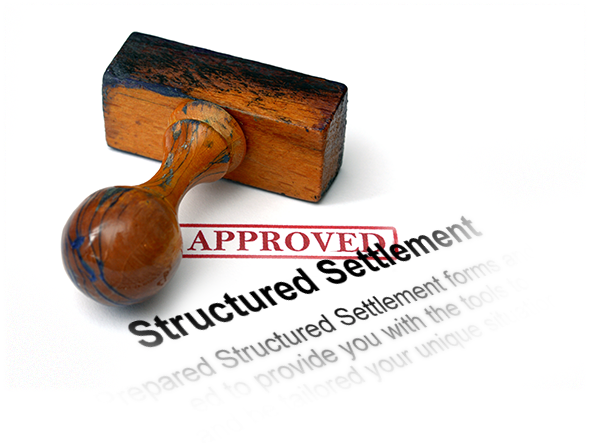 Many people who have obtained structured settlements through their personal injury or workers' compensation claims wonder if they should try to sell their settlement in return for a lump sum payment. This may be a relatively modest curiosity, piqued by an advertisement announcing "It's your money!" and promising cash payment. Or it may be based upon an immediate need for funds. However, selling a structured settlement is not always possible, and it is not necessarily an economically wise decision.
Many people who have obtained structured settlements through their personal injury or workers' compensation claims wonder if they should try to sell their settlement in return for a lump sum payment. This may be a relatively modest curiosity, piqued by an advertisement announcing "It's your money!" and promising cash payment. Or it may be based upon an immediate need for funds. However, selling a structured settlement is not always possible, and it is not necessarily an economically wise decision.
Your Structured Settlement Should Work For You
The best time to decide that a structured settlement is not right for you is before you consent to such a settlement. You may wish to press for a lump sum settlement, for periodic lump sum payments in addition to smaller annual payments, or for a lump sum to be issued at a future date when you anticipate a particular need. If you work out a settlement package that is in your best interest at the outset, you will be able to maximize the value of your settlement and get the greatest tax benefit from the structured portion of any settlement.
Remember that the companies which purchase structured settlements intend to profit from the purchase of your settlement. Their profit comes out of the payments you would otherwise receive.
Recall also that if your future earning capacity is impaired as a result of your injury, you should consider your future needs when you are making any decision regarding the sale of your settlement.
Restrictions on Selling Settlements
There are laws in approximately two thirds of the states which restrict the sale of structured settlements, and additional federal regulations apply to the sale of structured settlements. You should expect to have to obtain court approval for the sale, and most states have statutes in effect which regulate the transfer process. The insurance company that issued the annuities for the structured settlement may refuse to cooperate with the sale of a settlement, citing policy language and asserting that payments cannot be assigned.
Tax Consequences
As a typical structured settlement is designed to provide significant tax advantages to the injured plaintiff, there can be significant tax consequences associated with selling part or all of a settlement. It may be that, while payments made under the settlement were not taxed, the lump sum received through the sale of the settlement will be taxed.
Shop Around For Offers
If you are approached about selling your settlement, or are looking for a buyer, don't take the first offer you receive. You will almost always benefit from consulting with different brokers or buyers in relation to your settlement. You should also take care that you are working with an established, reputable buyer.
Consult A Lawyer
It is wise to consult a lawyer in relation to the sale of your settlement before signing a contract. A lawyer can help ensure that your rights are protected, and that you will not be subject to consequences for events outside of your control, for example if the company which purchases your settlement is later unable to collect payments from the insurance company which issued the annuities in your settlement package. A lawyer will be able to tell you if the terms of the purchase agreement are reasonable, and may also be able to advise you as to whether the offer made for your settlement is adequate.

0 comments
Post a Comment